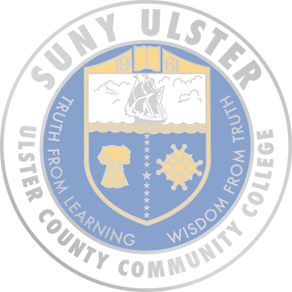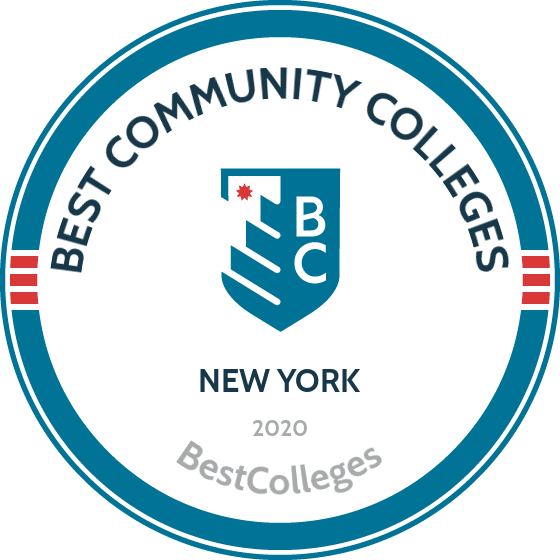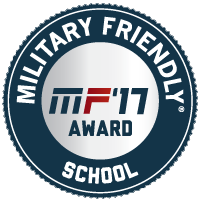Courses
215 courses found when searching within the Fall 2024 semester.
page = 7Basic Algebra
MAT 098
The following topics are covered in this first course in algebra: signed numbers, properties of real numbers, operations with polynomials, introduction to exponents, first degree equations and inequalities, introduction to absolute value, word problems, and graphing. Students may not use this course to satisfy mathematics requirements or mathematics electives in a program unless specifically approved by the Department of Mathematics and the department offering that program. The course satisfies an open elective at SUNY Ulster, but may not transfer to other institutions. Prerequisite: MAT 091 with a grade of C or better or by Entering Student Assessment.
Intermediate Algebra
MAT 100
Extending the skills covered in MAT 098, students learn factoring, algebraic fractions, exponents, roots, radicals, and quadratic functions. Students may not use this course to satisfy mathematics requirements or mathematics electives in a program unless specifically approved by the Department of Mathematics and the department offering that program. The course satisfies an open elective at SUNY Ulster, but may not transfer to other institutions. Prerequisite: MAT 098 with a grade of C or better or equivalent course in elementary algebra or by Entering Student Assessment.
Survey of Mathematics
MAT 101
Students will discover the power of mathematics as a foundation for lifelong learning. As they explore various real world applications, students will strengthen their critical thinking, quantitative analysis, and problem-solving skills, as well as discover connections between mathematics and other disciplines. Topics will include logic, probability, statistics, and set theory. Additional topics may include voting and social choice, geometry, graph theory, and symmetries. This course is intended for students who do not need higher level mathematics for their program. Prerequisite: MAT 098, placement in MAT 100 or higher or by permission of instructor.
Quantitative Reasoning
MAT 110
This course focuses on mathematical and statistical reasoning important for decision-making in everyday life. Students will utilize percentages, probability, mathematical modeling, and statistical thinking to solve real-life problems. Concepts are investigated through group work and class discussion in the context of medical, environmental, civic and financial scenarios. Prerequisite: MAT 095 with a grade of C or better or by placement assessment. Corequisite: MAT 094 by placement assessment. Pre and/or Corequisite: Placement into CRT 101 or higher.
Coll Algebra&Trigonometry
MAT 115
Topics in mathematics preparatory to MAT 160 are covered in this course. Students study linear and quadratic equations; absolute value and polynomial inequalities; coordinate geometry of the line and circle; linear and polynomial functions; techniques of graphing; exponential functions; logarithms; right triangle trigonometry; trigonometric functions of any angle; and fundamental trigonometric identities. A scientific hand-held calculator is required. Prerequisite: MAT 100 with a grade of C or better, high school equivalent (see Guidelines for Mathematics Placement), or by Entering Student Assessment.
Found of Elem School Math
MAT 140
Background information for the teaching of elementary school mathematics is provided in this course. Topics include problem solving; number theory; set theory; probability and statistics; theory of addition and subtraction; and logic. Students learn mathematical theory and application, and experience the role of elementary school students through a variety of classroom activities and demonstrations. Prerequisite: MAT 100 or its equivalent with a grade of C or better, high school equivalent (see Guidelines for Mathematics Placement), or by Entering Student Assessment. This course is open to education majors only.
Interpreting Statistics
MAT 150
This is a non-sequential course appropriate for students enrolled in a non-STEM program. Topics include descriptive statistics, hypothesis testing and confidence intervals and regression using both simulation and a theory-based approach. Technology will be used regularly throughout the course. Statistical concepts rather than computations will be emphasized.
Pre-Calculus
MAT 160
Topics in mathematics preparatory to MAT 170 are covered in this course. Students study functions (polynomial, rational, exponential, logarithmic, and trigonometric), inverse functions, and conic sections. A TI-83 or TI-84 graphing calculator is required. Prerequisite: MAT 115 with a grade of C or better, high school equivalent (see Guidelines for Mathematics Placement), or by Entering Student Assessment.
Calculus I
MAT 170
Survey of functions; limits; the first and second derivative; definite integrals; differentiation of polynomial, exponential, and trigonometric functions; curve sketching; and other applications of the derivative are covered in this course. This is the first of a three-course sequence dealing with Calculus. A TI-83 or TI-84 graphing calculator is required. Prerequisite: MAT 160 with a grade of C or better or high school equivalent (see Guidelines for Mathematics Placement).
Calculus II
MAT 180
The antiderivative, techniques of integration, applications of the definite integral, approximations, improper integrals, L'Hospital's Rule, series, and sequences are covered in this course. A TI-83 or TI-84 graphing calculator is required. Prerequisite: MAT 170 with a grade of C or better.
Differential Equations
MAT 204
Topics in this course include solutions to standard types of first- and second-order differential equations using differential operators, the method of undetermined coefficients, and variation of parameters. Students also study higher order equations, an introduction to Laplace transforms, systems of equations, series solutions, and numerical methods. Prerequisite: MAT 180 with a grade of C or better.
Discrete Mathematics
MAT 206
Symbolic logic, set theory, proofs based on elementary number theory, relations, and functions are covered in this course. Pre or Corequisite: MAT 170 with a C or better or by advisement.
Elementary Statistics
MAT 211
The following topics are covered in this non calculus based course: the organization of data, central tendency and dispersion, probability, binomial and normal distribution, hypothesis testing, correlation, regression, and the Chi-square distribution. A scientific hand-held calculator is required. Prerequisite: College-level General Education mathematics course with a grade of C or better, or high school equivalent.
Certified Production Tech
MFG 101
SUNY Ulster has partnered with local manufacturers to offer this course to prepare job seekers and employees with the skills needed to work in a manufacturing environment. The Certified Production Technician (CPT) program recognizes, through certification, individuals who demonstrate mastery of the core competencies of manufacturing production: Safety, Quality Practices & Measurement; Manufacturing Processes & Production, and Maintenance Awareness. This course will raise the level of performance of production workers, assisting individuals in finding higher-wage jobs and helping employers ensure their workforce increases the company’s productivity and competitiveness.
CNC Operator I
MFG 105
This course introduces core theory and practice for the operation of CNC mill and lathe machines. Hands-on activities will provide opportunities for application of knowledge gained from theory lecture, discussion and homework. Topics covered include safe operation of CNC machines, writing and loading a basic program into a CNC machine, running a CNC machine to cut a basic shape and the use of precision measuring instruments.
Fund Concepts of Metrology
MFG 109
This course teaches students to interpret the symbols and measurements that appear on technical drawings, necessary for machine operators, supervisors, inspectors, and other manufacturing personnel. Hands-on exercises, sketching, and group projects will be included in lessons. Topics covered: line types, basic symbols, basic multi-views, dimensions, tolerances, auxiliary views, assembly drawings, threads and fasteners, ANSI symbols, finishes, and sectional views. This course also covers basic measurement and math concepts required in a manufacturing environment. The application of fractions, decimals, metric and standard units, and algebra will be the initial focus, using industry-specific examples to develop students' mechanical problem solving skills. Basic geometry and trigonometry for calculating unknown dimensions, angles, areas, weights, and volumes will be covered. The course will incorporate work readiness and teamwork skill training.
AutoCAD
MFG 111
This course is designed to prepare students to take the Autodesk ACU exam. Students are introduced to the AutoCAD drawing platform using the flowing drafting methods: Geometric Construction, Orthographic Projection, Sectioning and Isometric Views. Special emphasis is placed on dimensioning, white space layout, GUI customization, scaling, and line weight. After successful completion of this course students will be proficient with the AutoCAD software and have an understanding of the fundamentals of drafting.
Intro to Commercial Sewing
MFG 130
This course teaches professional sewing techniques employed in the fashion business. Learn to sew and produce garments that are properly finished to industry standards. This course includes pattern layout, cutting, construction, and finishing of garments. Attendees will draft and utilize commercial patterns on a variety of projects utilizing industrial machinery and hand sewing. Fabric materials, core characteristics, and handling are also introduced in this course.
CNC Fundamentals
MFG 140
This course introduces core theory and practice for the operation of CNC machines. Hands-on activities will provide opportunities for application of knowledge gained from theory lecture, discussion and homework. Topics covered include safe operation of CNC machines, writing and loading a basic program into a CNC machine, running a CNC machine to cut a basic shape and the use of precision measuring instruments.
Advanced CNC Operator
MFG 205
This course will enable CNC students to apply the fundamental principles and applications of setup and operation to a CNC Lathe and CNC Mill. The course will cover the creating and editing of advanced multi-axis CNC programs, setup, and create work-holding fixtures. Students will perform typical inspection processes and be able to produce a production run of parts to the given print tolerance. Prerequisite: MFG 105 or by permission of Technology Program Coordinator
page = 7




